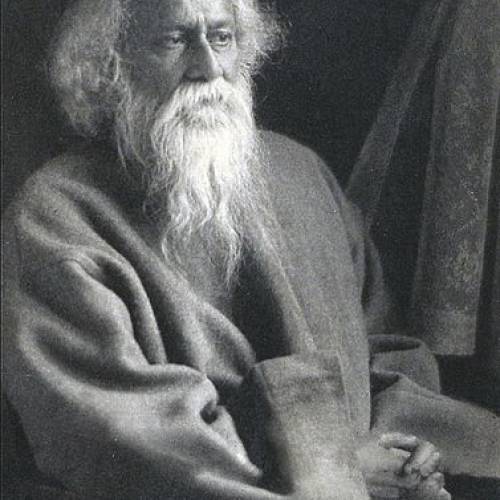 https://heaven.world/en/rabindranath-tagore
https://heaven.world/en/rabindranath-tagore
Firstname
Rabindranath
Lastname
Tagore
Name
Rabindranath Tagore
lived from:
1861-00-00
lived until:
1941-00-00
Rabindranath Tagore FRAS, also written Ravīndranātha Thākura, sobriquet Gurudev, was an Indian Bengali polymath who reshaped Bengali literature and music, as well as Indian art with Contextual Modernism in the late 19th and early 20th centuries. Author of Gitanjali and its "profoundly sensitive, fresh and beautiful verse", he became the first non-European to win the Nobel Prize in Literature in 1913. Sometimes referred to as "the Bard of Bengal", Tagore's poetry was viewed as spiritual and mercurial; however, his "elegant prose and magical poetry" remain largely unknown outside Bengal.
A Pirali Brahmin from Calcutta with ancestral gentry roots in Jessore, Tagore wrote poetry as an eight-year-old. At the age of sixteen, he released his first substantial poems under the pseudonym Bhānusiṃha, which were seized upon by literary authorities as long-lost classics. By 1877 he graduated to his first short stories and dramas, published under his real name. As a humanist, universalist internationalist, and ardent anti-nationalist, he denounced the British Raj and advocated independence from Britain. As an exponent of the Bengal Renaissance, he advanced a vast canon that comprised paintings, sketches and doodles, hundreds of texts, and some two thousand songs; his legacy endures also in the institution he founded, Visva-Bharati University.
Tagore modernised Bengali art by spurning rigid classical forms and resisting linguistic strictures. His novels, stories, songs, dance-dramas, and essays spoke to topics political and personal. Gitanjali, Gora and Ghare-Baire are his best-known works, and his verse, short stories, and novels were acclaimed—or panned—for their lyricism, colloquialism, naturalism, and unnatural contemplation. His compositions were chosen by two nations as national anthems: India's Jana Gana Mana and Bangladesh's Amar Shonar Bangla. Some sources state that Sri Lanka's National Anthem was written by Tagore whilst others state it was inspired by his work.
Kolkata (WB), India
https://en.wikipedia.org/wiki/Rabindranath_Tagore